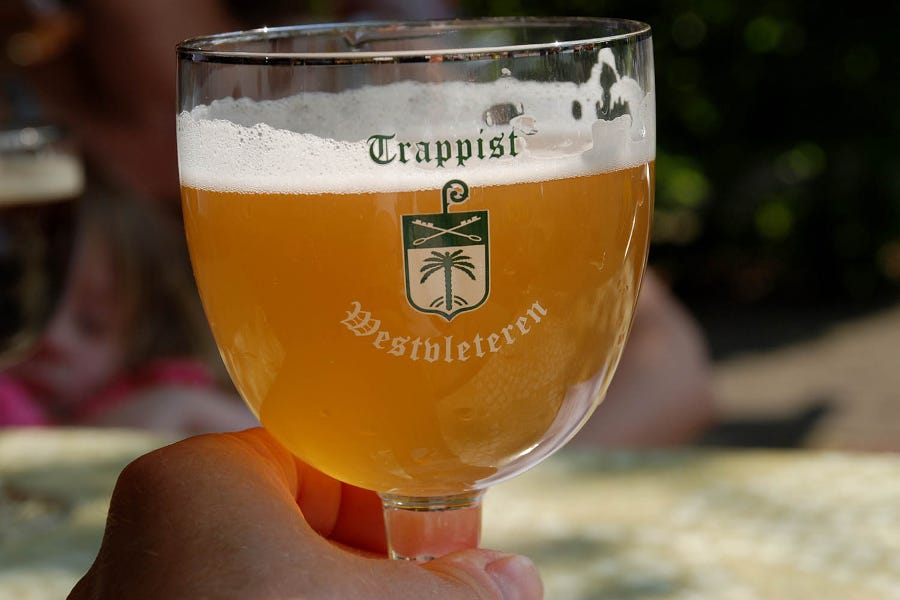
The monks of Belgium’s Saint-Sixtus Abbey don’t brew their coveted Trappist beer for profit.
So when they realized their product was being resold illegally at inflated prices over the border in the Netherlands, they decided to take action.
The abbey announced May 22 that its three beers — Trappist Westvleteren Blond, Trappist Westvleteren 8, and Trappist Westvleteren 12 — would be sold in independent Dutch liquor stores for a trial period of a year.
A spokesman for Saint-Sixtus Abbey told The Pillar May 25 that in 1946, the monks decided to limit the production of Trappist Westvleteren beer so they could focus on their monastic duties, rather than being brewers.
“They only brew in order to to pay for their livelihood, to pay for the salaries of the people who are working in the abbey, to do the necessary investments, and the upkeep of the monastery. If there’s anything left, they donate it to good causes,” he said.
But demand for the beer far exceeds its production, which presented black marketeers in Belgium with an opportunity to resell the beer at exorbitant prices.
“The monks were not very happy with that because it’s against their values,” the spokesman said in a phone interview. “They want to brew a good beer. They do not maximize profits.”
In 2019, the monks introduced an online reservation system that enabled them to identify and exclude several resellers. The problem then shifted to the Netherlands.
“We saw that in supermarkets and shops all of a sudden large amounts of crates were appearing,” the spokesman explained. Excise duty had not been paid on the crates, posing a potential problem for vendors with the authorities.
The monks decided that the best way to tackle the black market in the Netherlands was to reserve around 10% of beer production for Dutch consumers and set up a formal distribution system in the country.
A trusted Dutch importer will supply shops at regular intervals with a limited amount of bottles, which they will sell individually to individual consumers. The bottles will not be delivered in the monks’ traditional wooden crates, which hold 24 bottles.
“If a shopkeeper does not follow the agreed rules, other shopkeepers might get priority,” the spokesman said. “So it’s in their interest that they follow the rules.”
The advisory price is less than 5 euros per bottle.
“The good thing is that as soon as in the Netherlands one sees appearing wooden crates, or beers being sold at 10, 12, or 15 euros per bottle, one knows immediately that they are not from the formal distribution system,” he explained.
The abbey brewery, in the Belgian province of West Flanders, produces approximately 7,500 hectoliters annually over 42 brewing days.
The monks employ the infusion brew method, using only natural ingredients including water, barley malt, hops, and yeast. The beer is unfiltered and unpasteurized.
Only five of Belgium’s celebrated beers bear the Authentic Trappist Product logo: Chimay, Orval, Rochefort, Westmalle, and Westvleteren. The Trappist Westvleteren beers are the rarest of the five.
To qualify for the label, products must be created within the environs of an abbey. The process should be supervised by monks or nuns, and profits go to the religious community or charitable works.
There are just 13 abbeys worldwide that belong to the International Trappist Association while brewing and selling their own beer.
The brewery at Saint-Sixtus Abbey — which belongs to the Order of Cistercians of the Strict Observance and has 20 monks and nine lay workers — dates back to 1839, when it received a brewer’s license signed by Belgium’s King Leopold I.
